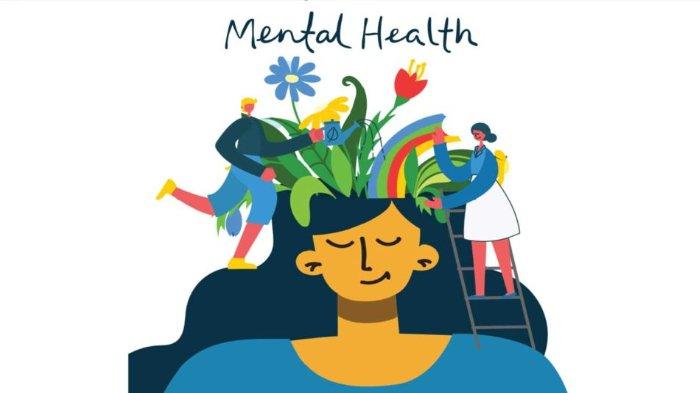
Source : tribunnews.com
Islamic Education Study Programme od Alma Ata – Mental Health. Nowadays, modern progress is prominent and successfully realised, especially in the field of science and technology. However, that field displays an unpleasing impact on humanity, as it now becomes spiritual misery. There are several clashes between material and spiritual elements that result in various psychological problems. It is easy to undermine a person’s mentality if his/her faith and understanding of Islam are not strong. In Islamic psychology, it is known as the Muslim personality in which the elements of faith are very dominant in dealing with mental disorders or mental illnesses that exist.
Mental problems in each person are of course in different levels or portions. One cannot simply generalize and assume that the problems they face are trivial. Often the negative reaction of people around them makes a person’s mental condition worsen due to the lack of understanding of mental health, especially about adolescent mental health. This adolescent age is the age of transition from childhood to adulthood. At this age, adolescents need to be guided properly because of the sudden changes that demand them to be more mature in all aspects and able to keep up with all the advancing developments.
Mental health, from an Islamic perspective, is an individual’s ability to manage psychological functions and create adjustments with oneself, others, and the surrounding environment dynamically based on the guidance of the Quran and Sunnah towards happiness in the living world and the after. In simple words, there is a good relationship between humans and the Creator. WHO (2014 in Agustin 2018) explains that mental or mental health is a condition that allows optimal physical, intellectual, and emotional development of a person and it goes hand in hand with other people’s circumstances. A healthy mentality is characterised by knowing one’s potential, being useful to others, being able to cope with life’s pressures, and being productive according to their abilities.
Islam explains several things related to mental illness, such as pessimism, spite, arrogance, ghadap (anger), hiqdu (revenge), ujub (pride), delusion, Huzn (excessive grief or sadness), despair, anxiety, and doubt.
Dr Jalaluddin in his book “Psychology of Religion” stated that: “Mental health is an inner condition that is always in a calm, safe, and peaceful state, and efforts to find inner calm can be made, among others, through self-adjustment in resignation (complete surrender to God)”. The Muslim thinker, al-Ghazali, believed that humans are physical and spiritual beings who have a soul aspect considered as fact. Regarding efforts to create peace of mind, he took the Quran as a representation.
As a Muslim, having faith and piety in Allah is important to maintain our mental health. With that, we can control our attitudes, actions and behaviour in facing all kinds of life’s problems. People who can deal with the negative impact of the times that continue to advance with the suitability of human civilization are mentally healthy.








